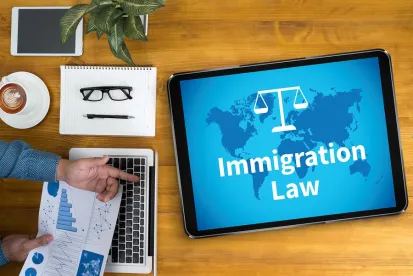Why is H-1B Filing Season Important?
This is the only time of year (with minor exceptions indicated below) U.S. Citizenship and Immigration Services (USCIS) accepts H-1B specialty worker petitions for the next fiscal year, which begins Oct. 1, 2020. For a petition to qualify in the H-1B category, the job offered must be a specialty occupation in which a bachelor's degree (or its equivalent) is normally the minimum requirement, and the foreign national employee must hold a bachelor's degree (or its equivalent) in the specialty defined by the position. In some cases, a bachelor’s-level threshold may be met through a combination of the employee’s education and work experience.
There is an overwhelming demand for the annual allotment of 85,000 new H-1B slots. The number of H-1B approvals requested by employers has reached the annual H-1B cap every year for more than 10 years. Last year, USCIS received 201,011 petitions within the first week of the petition period, then conducted a random lottery to determine which petitions would take the 85,000 slots. Thus, if you have an employee that needs a “new” H-1B visa it is imperative that you take action during the H-1B filing season or your will have to wait a full year for another opportunity.
New Registration Process in 2020
For the first time, employers seeking to file H-1B cap-subject petitions must complete an electronic registration for every case the employer wishes to enter into the H-1B lottery. The online registration period will run from March 1-20, 2020. Please note the registration period will take place in advance of the historical April 1 filing window. The registration will require a $10 fee for each case to be entered into the lottery plus basic information about the employer and employee. After the registration period closes, USCIS will conduct a random selection lottery from the registrations. Employers whose cases are selected will then have at least 90 days to complete and file H-1B petitions with USCIS.
Dinsmore attorneys are available to assist employers in navigating the new application process, including completion of the electronic registration and subsequent preparation and filing of selected petitions. USCIS continues to develop its electronic registration system and is expected to release additional details as the registration period approaches.
Are There Certain Employees We Should Consider Registering?
Yes, four situations come to mind:
-
Students who hold F-1 visa status and who are working for your organization under a grant of Optional Practical Training or STEM Optional Practical Training work permission;
-
Certain L-1 Intracompany Transferees or TN (NAFTA) workers who work for your organization;
-
Candidates who are not yet working for your organization but whom you have an interest in employing in the near future; and
-
Dependent spouses who hold H-4 status and who have been authorized to work with an Employment Authorization Document (EAD).
Why F-1 Students?
Some F-1 students may hold Optional Practical Training (OPT) work permission that is limited to one year. Other F-1 students may be eligible for an additional 24 months of “STEM” OPT work permission. Either way, OPT is time-limited.
Why L-1 Intracompany Transferees?
The L-1 intracompany transferee visa category applies to foreign nationals who have been employed abroad in executive, managerial, or specialized knowledge capacities for at least one year with a commonly owned foreign company, and who are in the United States working for the same or a related U.S. employer.
L-1 executives or managers (L-1A) may remain in the United States for a maximum of seven years. Specialized knowledge (L-1B) employees may remain for a maximum of five years. There is no possibility of an extension once the seven-or five-year limit has been reached and the time table to complete the permanent residence process continues to climb, especially for Indian foreign nationals.
Why H-4 Spouses with Employment Authorization Documents?
In 2015, a lawsuit was filed against the U.S. Department of Homeland Security (DHS) challenging the legality of the H-4 EAD program. Although the lawsuit is still ongoing, the current administration has stated its intention to eliminate the program, placing H-4 EAD workers at a greater risk of losing work authorization. Because the fate of the H-4 EAD program is uncertain and there is a risk the program may be altered or terminated, H-4 spouses working with EADs may wish to have their H-4 statuses changed to H-1B for greater long-term employment security.
Why TN Employees?
While Trade NAFTA (TN) workers are not limited in employment duration like their L-1 counterparts, pursuing permanent residence while holding TN status can be problematic. Employers may want to change their TN employees to the H-1B category to facilitate permanent residence (green card) sponsorship.
Are There any Exemptions from the Annual H-1B Cap?
Persons already counted under the H-1B cap and who need an extension of stay are not subject to the annual limitation. Similarly, persons who already hold H-1B status and are transferring to a new employer are exempt from the cap. The annual limitation applies only to persons not yet counted against the annual cap. Also, certain types of educational or nonprofit organizations that file H-1B petitions are exempt from the H-1B numerical limitation.




 />i
/>i
